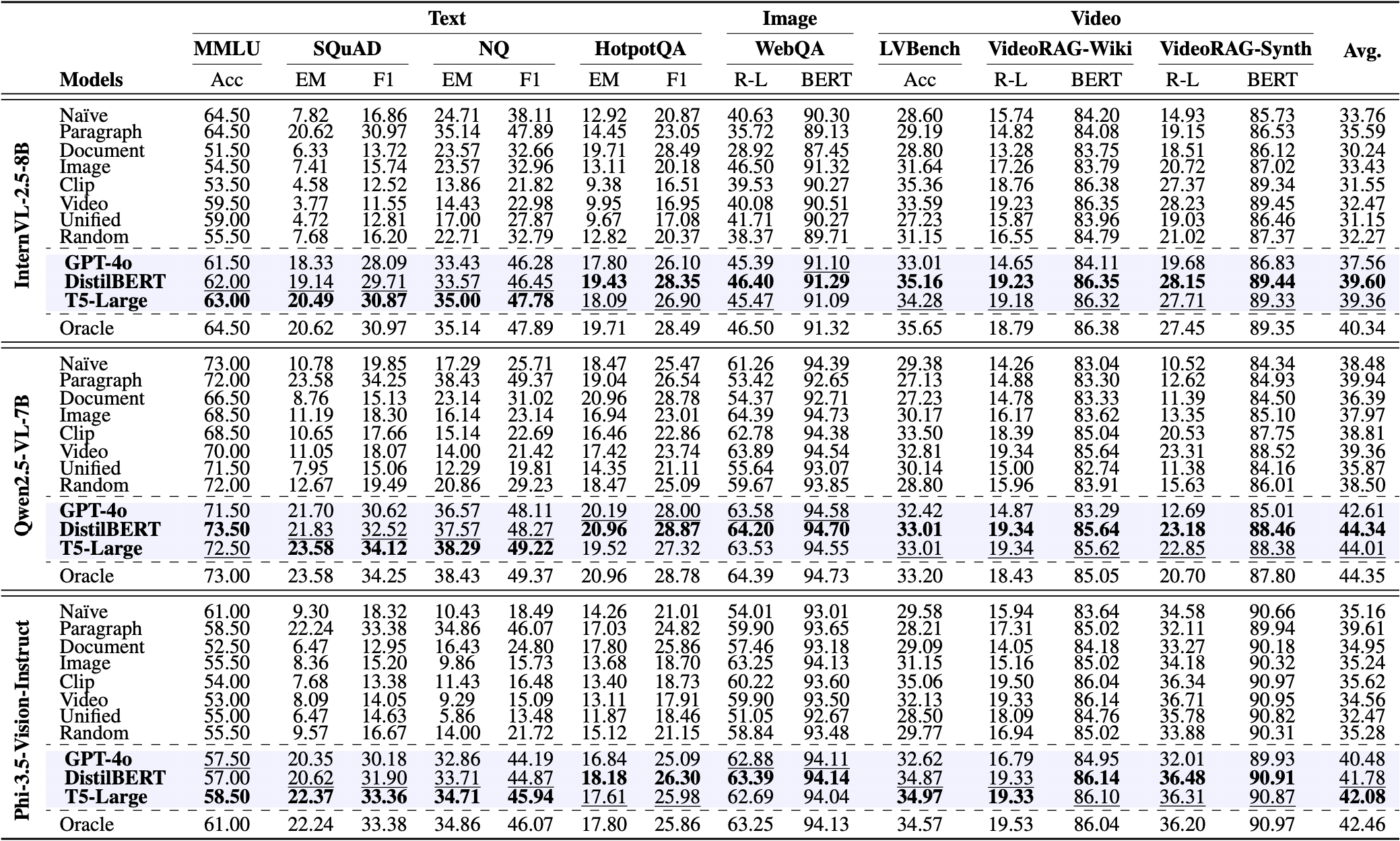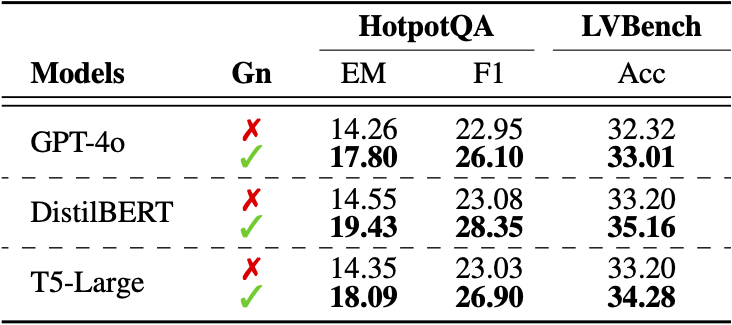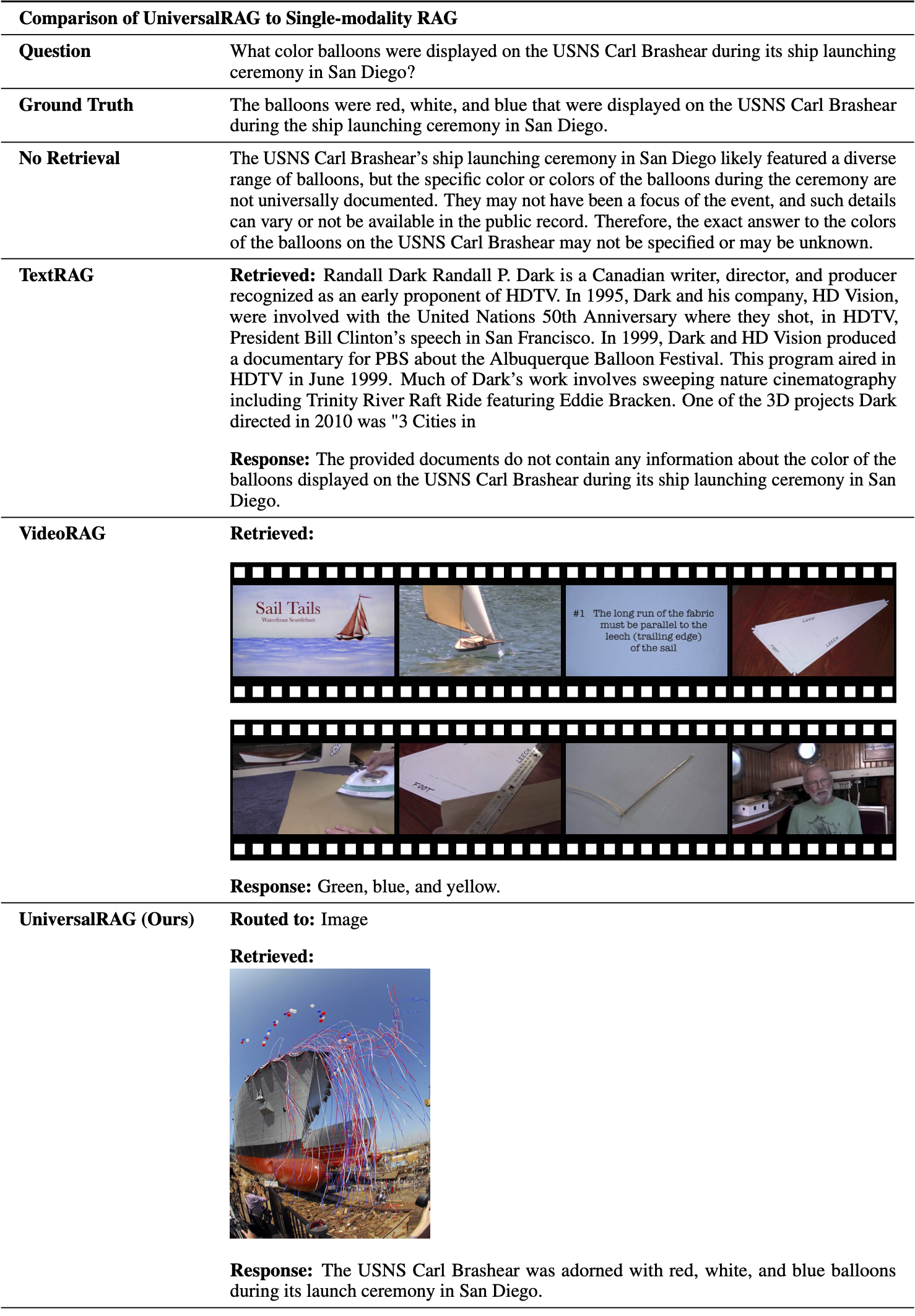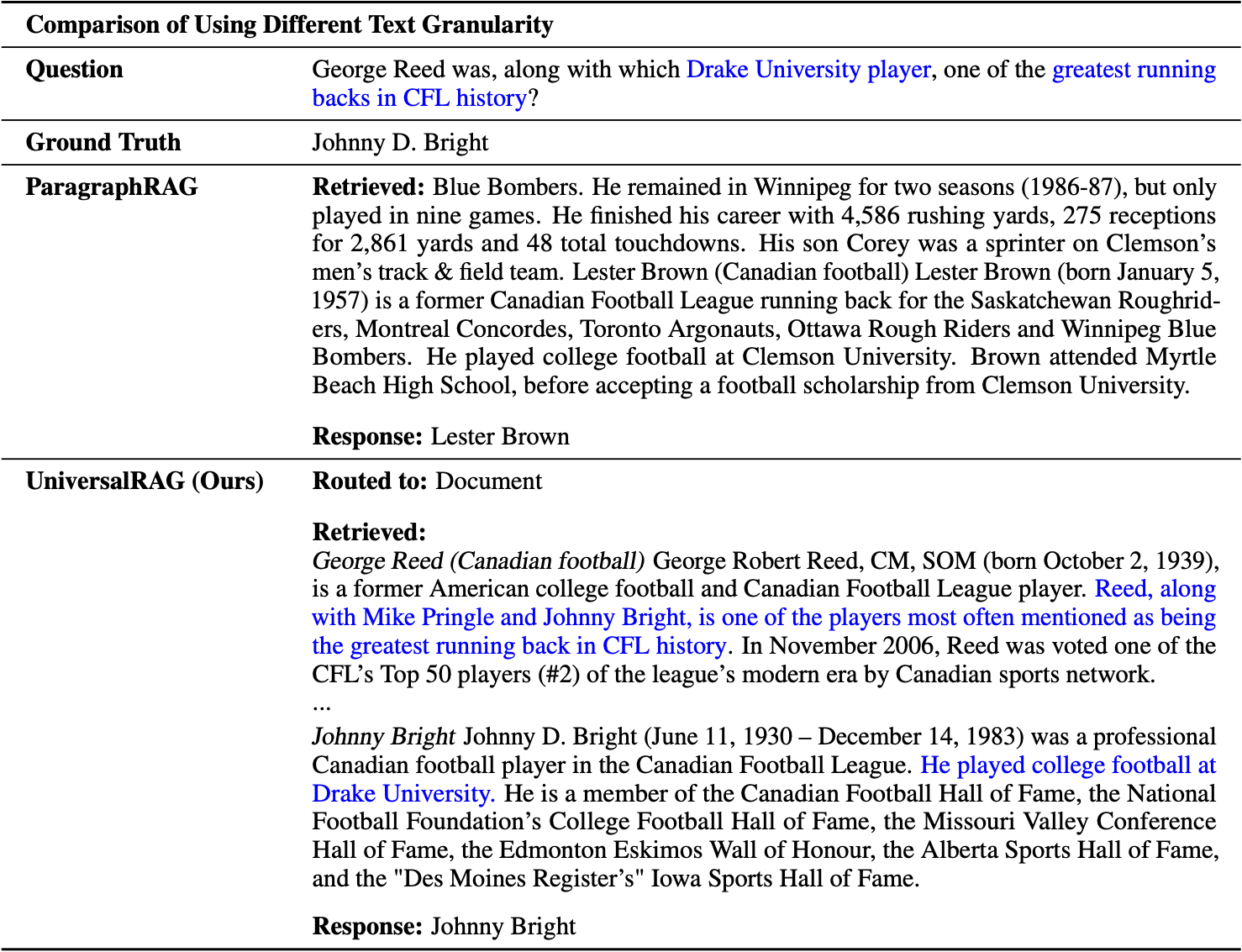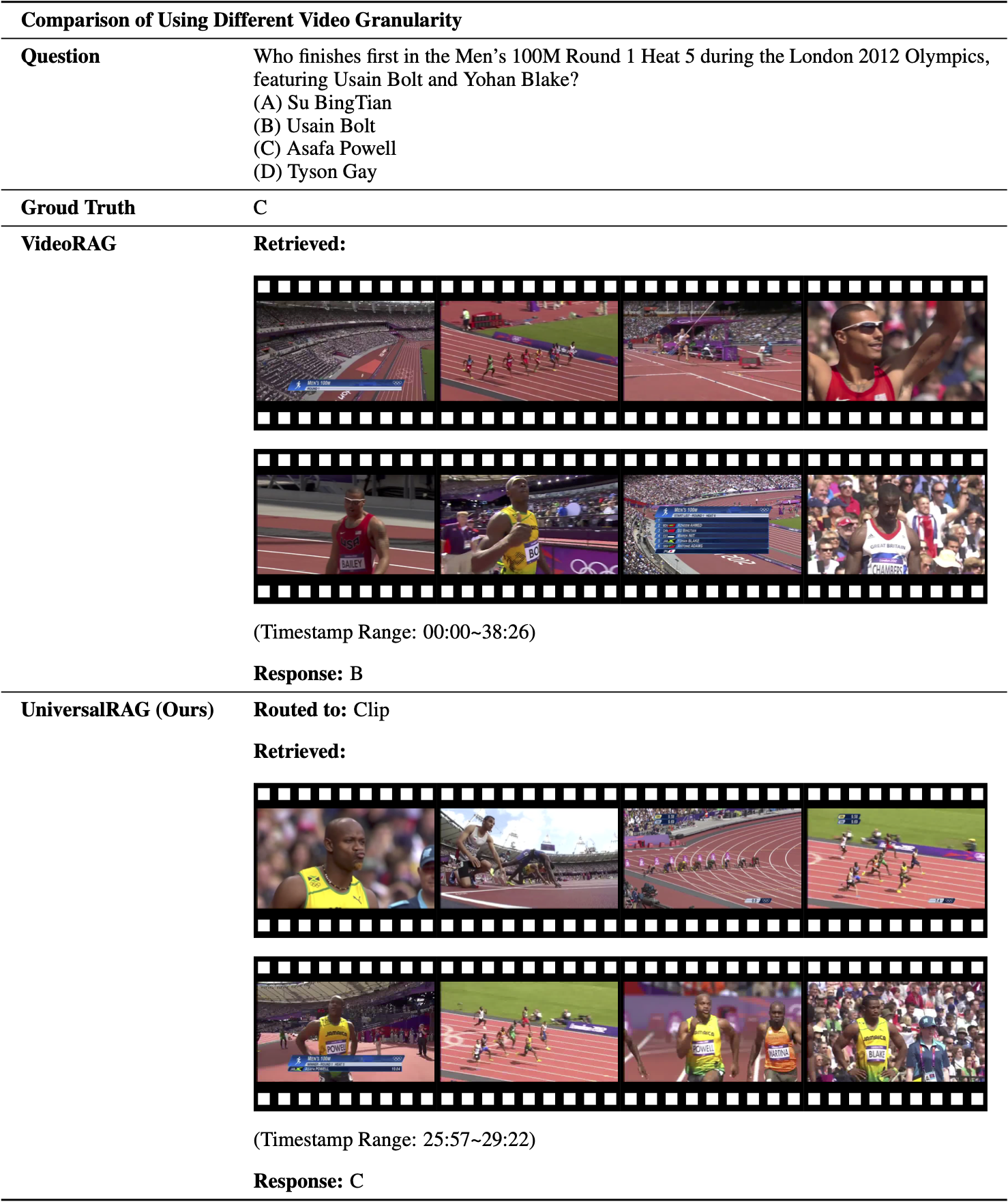👀 TL;DR UniversalRAG is a novel RAG framework that retrieves across multiple modalities and granularities by introducing a modality-aware routing mechanism that dynamically identifies the most appropriate modality-specific corpus for each query, effectively addressing the limitations posed by modality gaps and fixed-granularity retrieval.

Concept. Illustration of limitations of existing RAG methods (Left), and the proposed UniversalRAG framework (Right). Specifically: (A) RAG with Single Modality struggles to handle queries requiring modalities other than one in the corpus; (B) RAG with Single Granularity lacks flexibility in granularity, resulting in overly fine or overly coarse information; (C) RAG with Single Unified Corpus causes modality gaps that bias retrieval toward the modality of the query; (D) Our UniversalRAG overcomes these limitations via a modality- and granularity-aware routing mechanism over diverse corpora.

